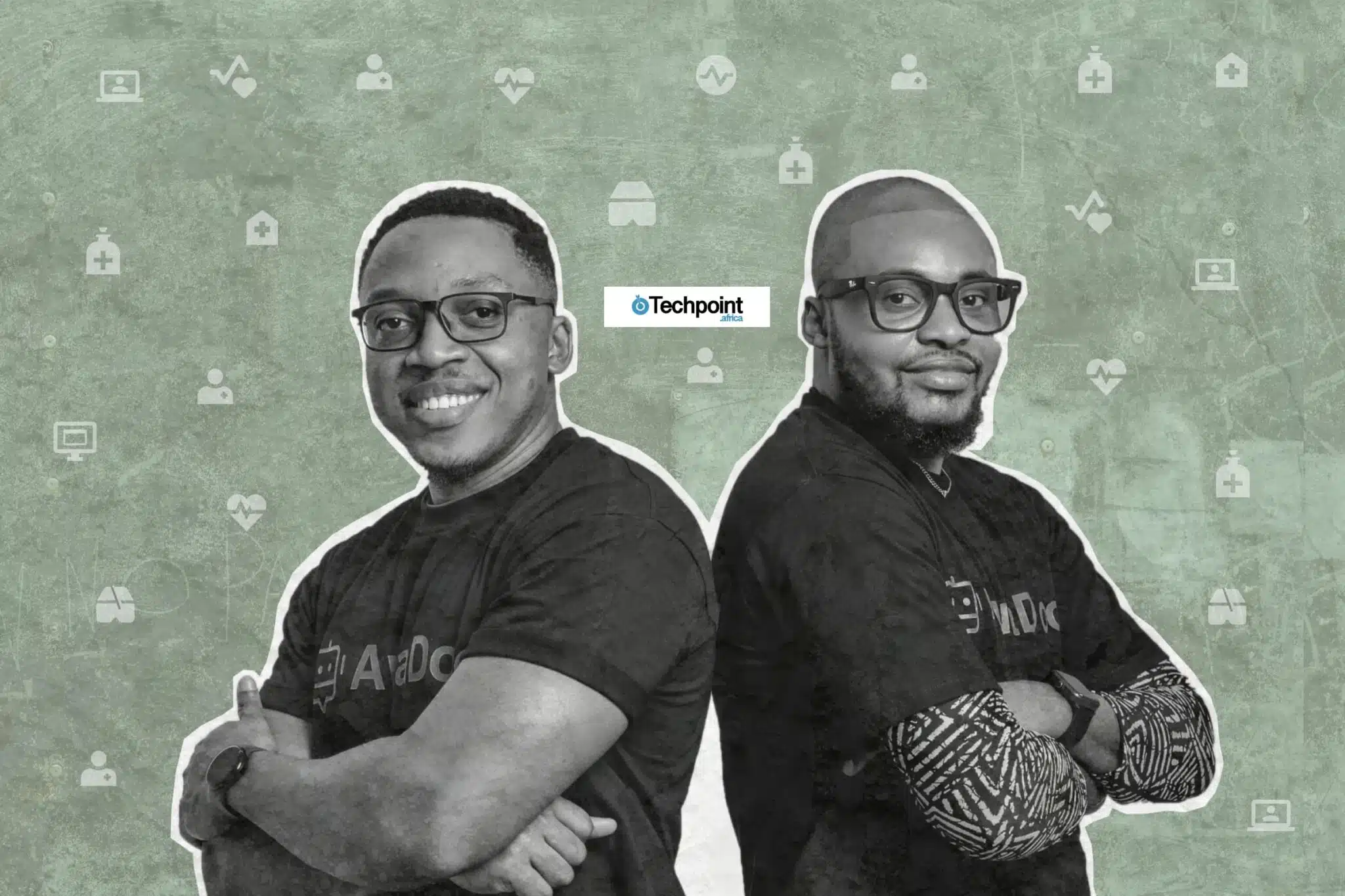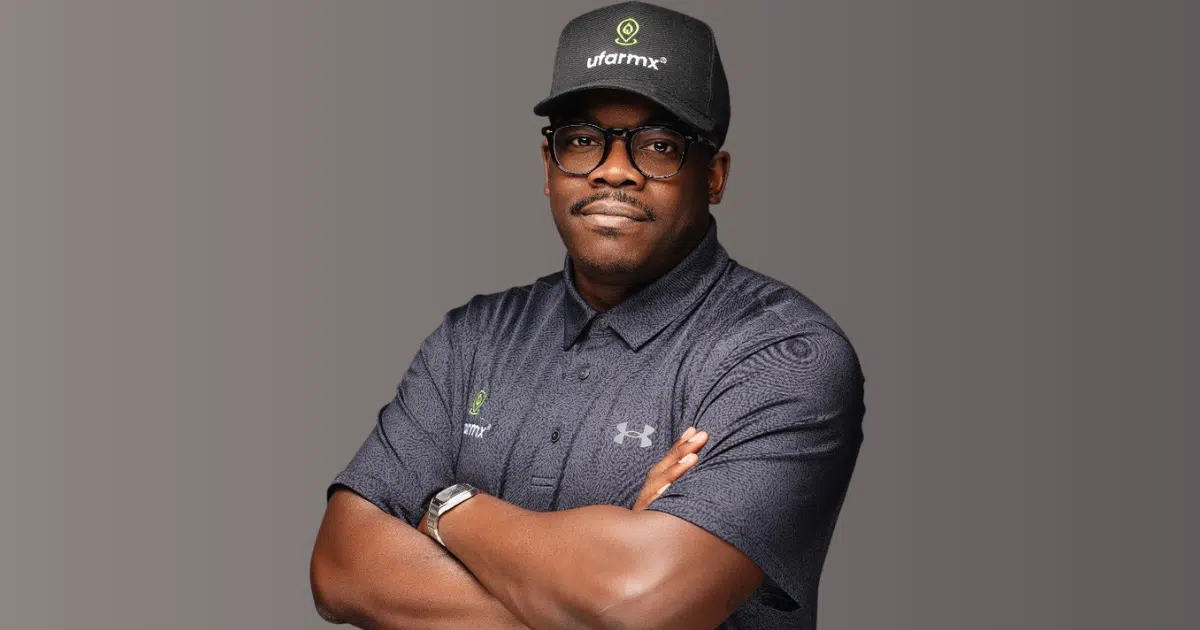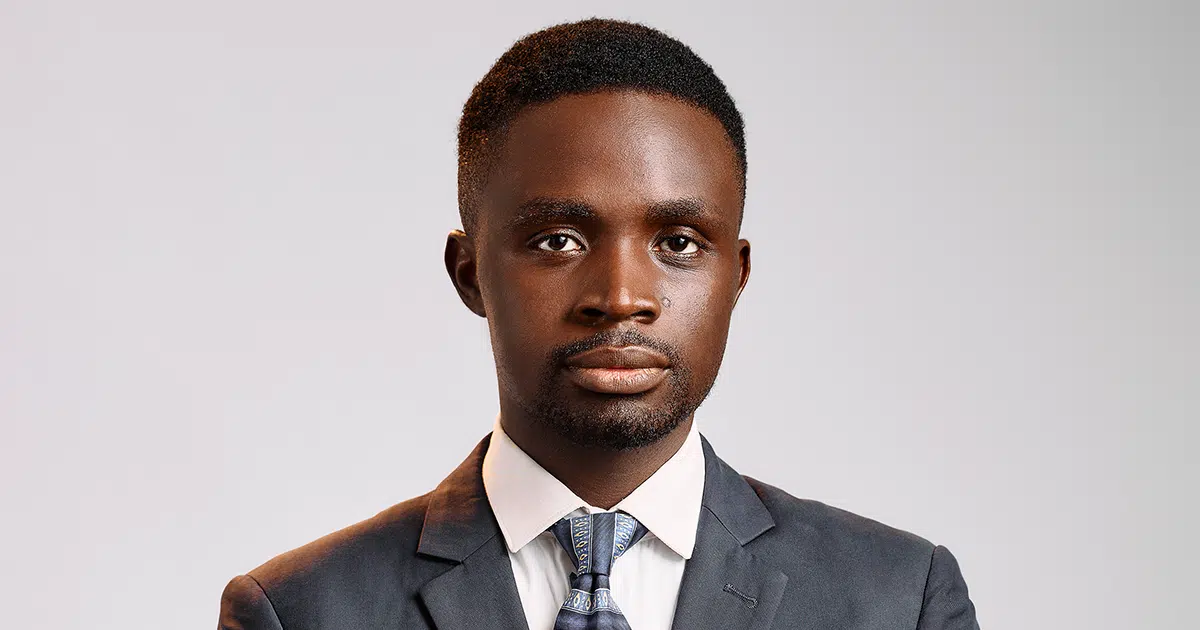For nearly a decade, Chinonso Egemba has built a large social media following by simplifying medical information under the “Aproko Doctor” brand. For his next act, he’s counting on this large following — nearly seven million across X, Instagram, TikTok, and YouTube — to drive the success of AwaDoc, his healthtech startup.
In his final year as a medical student, Egemba watched a patient who had been informed of the severity of their medical condition die because they failed to follow a doctor’s direction. That experience led him down the path of content creation, where his fictitious characters, Emeka and Nkechi, help millions of Nigerians stay health-conscious.
“I’ve always been interested in ensuring that the average Nigerian, the average African, is empowered enough to have healthcare,” he tells Techpoint Africa.
“I’ve always been very passionate about universal healthcare being available, especially in countries like Nigeria. So I devoted my time and my life to ensuring that the average Nigerian is empowered, first of all, with information, but over time, I noticed that information wasn’t enough.”
The World Health Organization (WHO) recommends ten doctors per 10,000 people, but only seven African countries met the mark as of 2022. In Nigeria, there are four doctors for every 10,000 people, and this has been exacerbated by a mass exodus of doctors in recent years.
Between poor wages, a cratering economy, and an unconducive work environment, many Nigerian medical professionals, some fresh out of school, are choosing migration over working in the country. This development has significant implications for those who remain and the patients they serve, as overworked and underpaid doctors are unlikely to provide patients with adequate care.
Egemba is building AwaDoc with Jesse Benedict in response to this, but he insists AwaDoc is not a telemedicine app.
Not another telemedicine app
Telemedicine isn’t novel to Nigerians. In light of low doctor availability, some startups have sprung up as standalone solutions or embedded into plans provided by health maintenance organisations (HMOs). However, traction and growth have been slow for several reasons.
One reason is the availability of healthcare insurance in the country. Just about 3% of Nigerians hold any form of health insurance. For those who do, that insurance is often provided by their employers. In a country where most individuals are either unemployed or employed in the informal sector, telemedicine can only do so much.

Victoria Fakiya – Senior Writer
Techpoint Digest
Make your startup impossible to overlook
Discover the proven system to pitch your startup to the media, and finally get noticed.
It’s a problem Egemba has seen firsthand working as a doctor, hence the decision not to build a telemedicine solution.
“AwaDoc is not a telemedicine platform,” he says. “AwaDoc is a platform that helps ensure the patient journey is easier, especially through the Nigerian system.”
By the Nigerian system, he’s referring to the propensity of Nigerians to self-diagnose and self-medicate rather than visit a health care centre.
AwaDoc’s solution is an AI chatbot built on WhatsApp that provides next steps or clarity to users on the symptoms they present. The decision to build on WhatsApp rather than create a web or mobile app is due to WhatsApp’s penetration among nearly ten million Nigerians on the platform.
“One thing I’ve learnt is that enthusiasm doesn’t scale; fatigue does, and so when you have to create extra steps for people to get something, that extra step might lead to fatigue.”
How AwaDoc works
Using AwaDoc is seamless. Users simply log in to WhatsApp and can immediately start a chat with the AwaDoc bot. After inputting their symptoms or asking health-related questions, the bot provides more information before connecting them to a medical professional as required.
Since it isn’t a telemedicine platform, AwaDoc will partner with third parties to ensure its users get access to the help they need. Last month, it announced a partnership with Clafiya that will help its users to order medication, speak with doctors, and book lab tests all from WhatsApp.
”We want the average Nigerian to be able to pick up their phone and get clarity on certain things that are wrong with them. It’s not a diagnosis per se, but it helps them in their journey so they already know from the get-go this is the kind of specialist I need to speak to, or this is the kind of doctor that I need to go to,” Egemba notes.
Emphasising the need for more partnerships within Nigeria’s healthtech sector, Jennie Nwokoye, CEO of Clafiya, says that the partnership with AwaDoc will enable it to reach more individuals.
“When the opportunity came up, it was a no-brainer for us to do the partnership because as long as more people can get access to healthcare services, I’m all for that.”
Leveraging WhatsApp not only enables AwaDoc to reach a larger audience but also allows it to provide round-the-clock care for users. However, doing this will require large amounts of data on Nigerian healthcare behaviour to provide helpful results to its users.
To get this data, the startup says it will partner with organisations in the private and public sectors. Currently, it is conducting research to document how Nigerian users typically describe symptoms.
“A patient could say something is running through their body and that is a symptom, but it’s not in a medical textbook,” Egemba says. “If we do not understand the context of these symptoms, we would not be able to help anybody.”
AwaDoc is not yet available to the public, but when it goes live, Benedict says it will pursue a B2B and B2C business model.
On the B2C front, users can access basic AI-powered symptom checks and health guidance for free via WhatsApp. The startup will then upsell value-added services, such as doctor consultations through its partner network, lab bookings, e-prescription fulfilment, and home care services.
Meanwhile, AwaDoc’s B2B strategy involves partnering with HMOs, pharmacies, and employers to offer its digital health platform as an affordable solution for their users or staff.
According to Benedict, the company is mindful of the widespread reluctance among Nigerians to pay out of pocket for healthcare. In response, AwaDoc will introduce pay-as-you-go options and health savings incentives to encourage consistent usage.
Beyond WhatsApp
For many Nigerians over 20, Maggi has become synonymous with seasoning cubes, regardless of the actual brand. It is this level of ubiquity that AwaDoc seeks to attain.
“We’re building AwaDoc in such a way that it becomes the first point of call for Nigerians to get information about their health,” Benedict says of the startup’s ambitions. “As time progresses, we want to partner with hospitals, clinics, and even doctors such that they use AwaDoc as a reference,” he adds.
Just as it plans to transcend WhatsApp, the startup hopes to serve the rest of Africa, but notes that it intends to first get the product right in Nigeria before expansion. It is currently raising $500,000 in a pre-seed round that values the company at $2.5 million. Benedict says it has received encouraging attention so far.
The Aproko Doctor advantage
Few sectors in Africa are as challenging to build in as healthcare. The first and most obvious hurdle is cost. Most people must pay out of pocket for medical services, unless they’re among the small minority with health insurance. As a result, many Africans either delay seeking professional care or turn to traditional medicine.
Despite these challenges, neither Benedict nor Egemba is fazed. For Benedict, the startup has two key advantages — a relatable, highly accessible platform in WhatsApp, and the massive influence of Egemba, whose credibility and reach give AwaDoc a head start in building trust.
But while brand power can drive initial adoption, long-term success will hinge on near-flawless execution and a willingness to change course when needed.
Healthtech in Nigeria is littered with promising startups that failed to scale, often due to complex user behaviour and a broken health infrastructure. AwaDoc’s strategy of plugging into existing systems rather than replacing them could give it a more sustainable path, especially if its AI can adapt to Nigeria’s informal, non-textbook ways of describing symptoms.
Its B2B model also shows promise. If AwaDoc can secure steady partnerships with employers, pharmacies, and HMOs, it may not need to rely heavily on out-of-pocket consumer payments, which have proved to be a major stumbling block for other healthtech startups.
That said, the success of these partnerships will depend on the startup’s ability to demonstrate tangible value and reliability from day one.
While these early partnerships could help save costs, they also carry the risk of becoming a hindrance if the quality of third-party services impacts customer trust. Nwokoye suggests this might eventually lead the startup to bring more services in-house.
“I wouldn’t be surprised if that is something that they eventually decide to do, because some people come into the market, rely on partnerships, and then eventually say, ‘Hey, I think we can do this.’
“We’ve gotten to a point where we have a lot of loyal customers, and it would be more cost-effective to do this on our own rather than rely on partnerships that work today but won’t work tomorrow.”
Meanwhile, Egemba’s personal brand, which provides the startup with credibility among users, could also become its greatest challenge. To truly scale, the product must eventually outgrow its founder’s persona. If it can do that while offering meaningful guidance, reliable triage, and a smooth handoff to trusted healthcare providers, AwaDoc just might become the health companion Nigerians didn’t know they needed.











